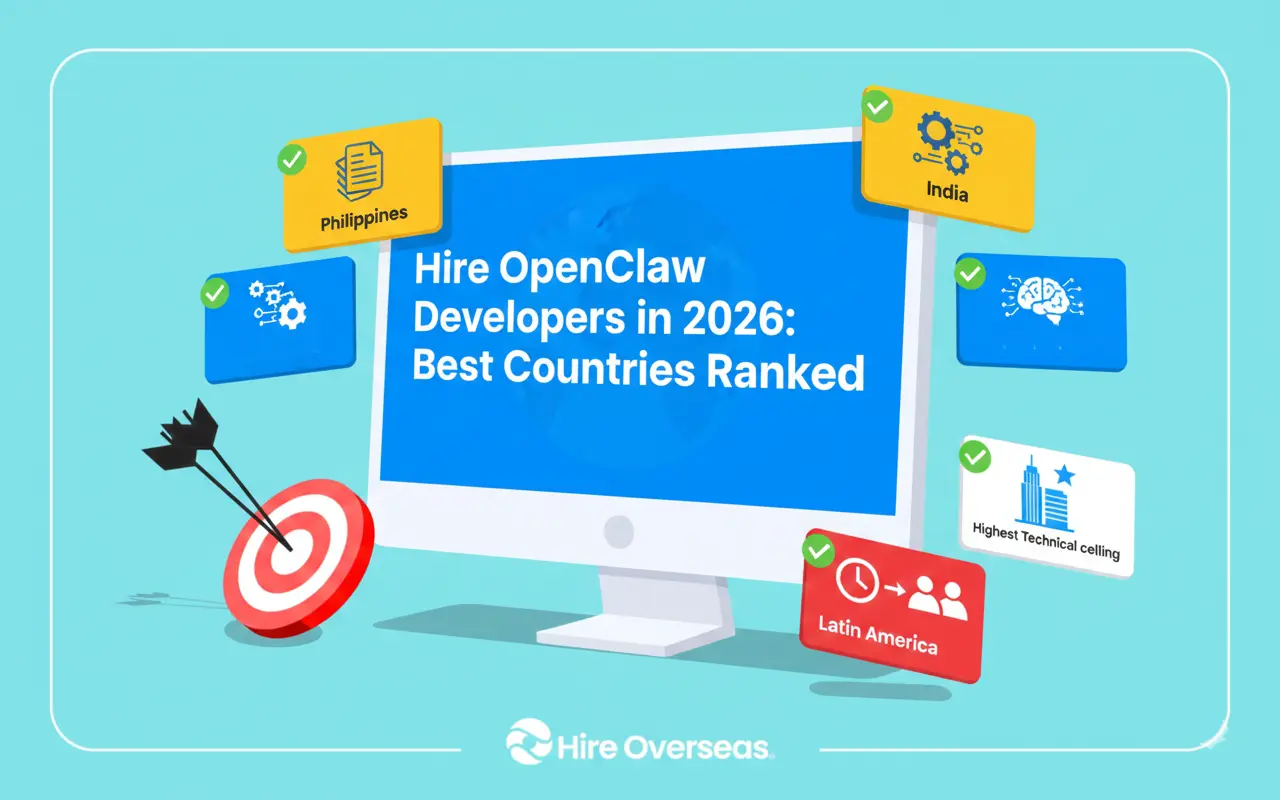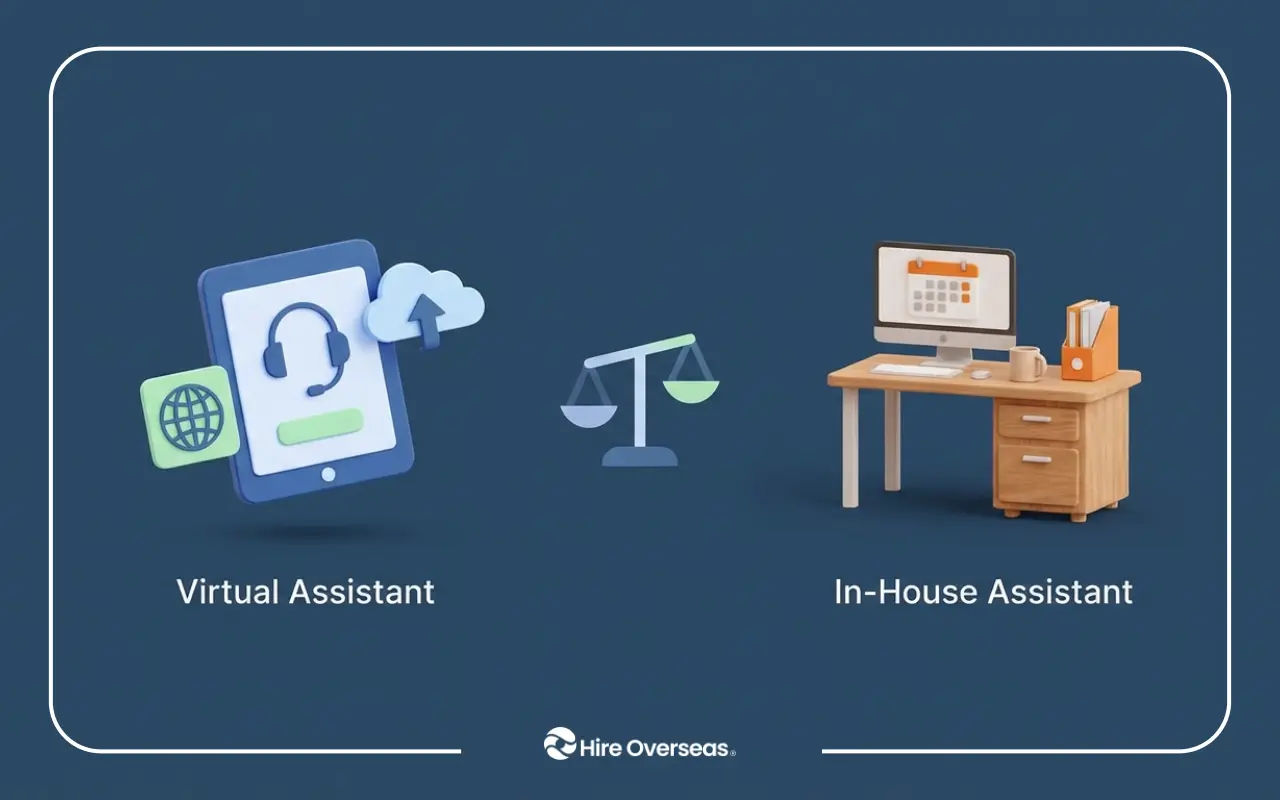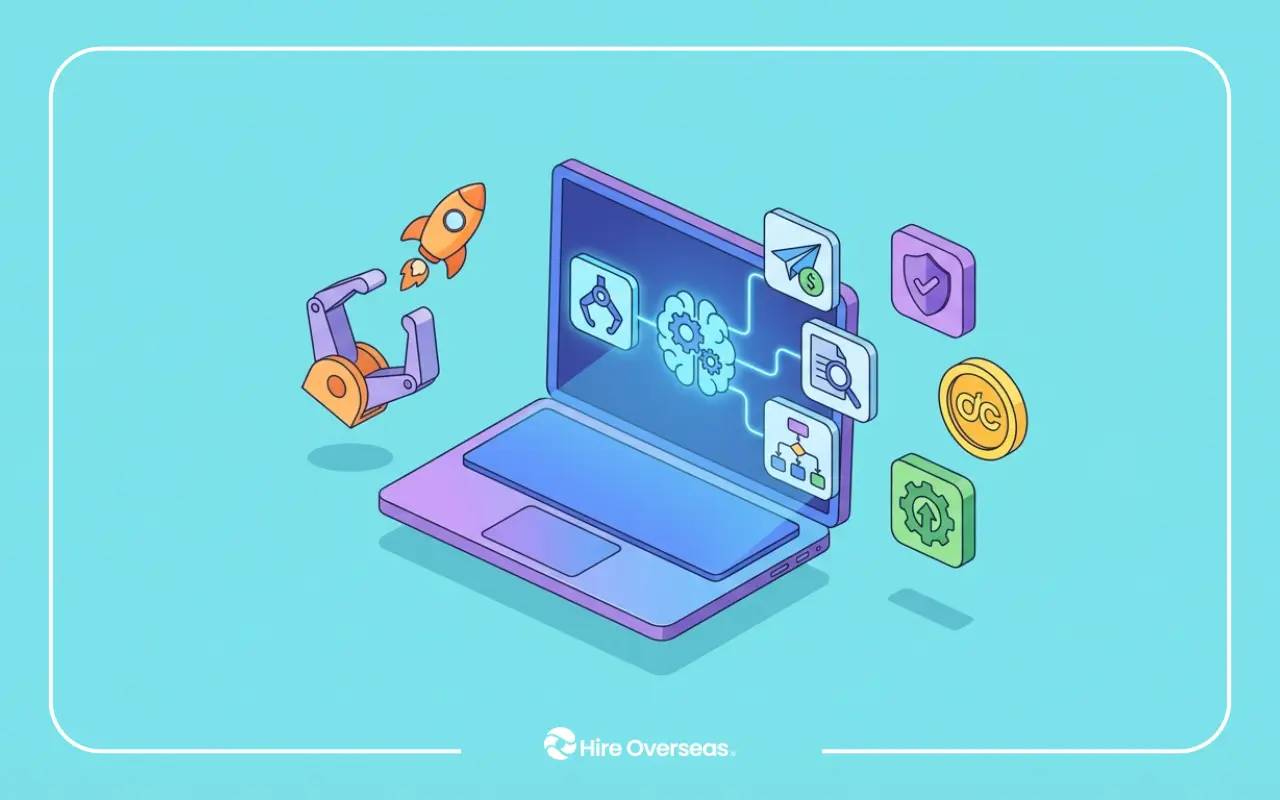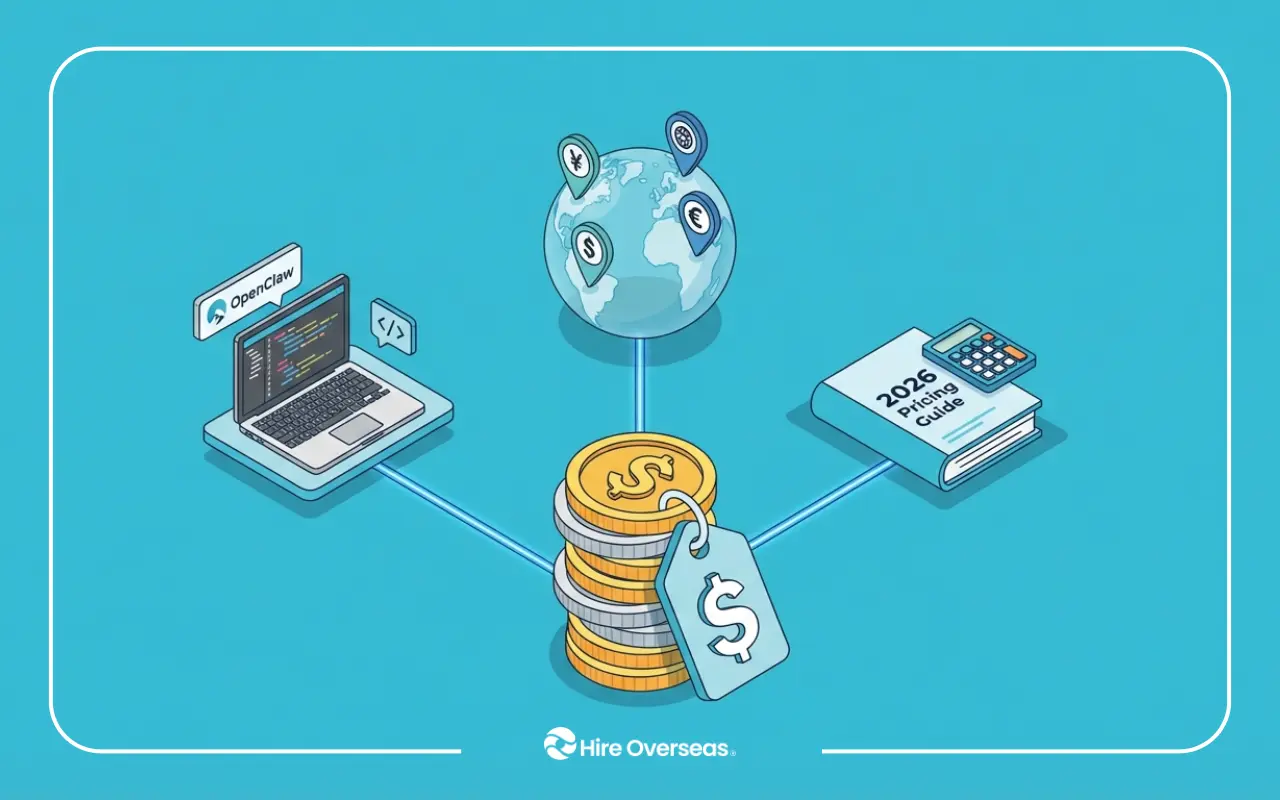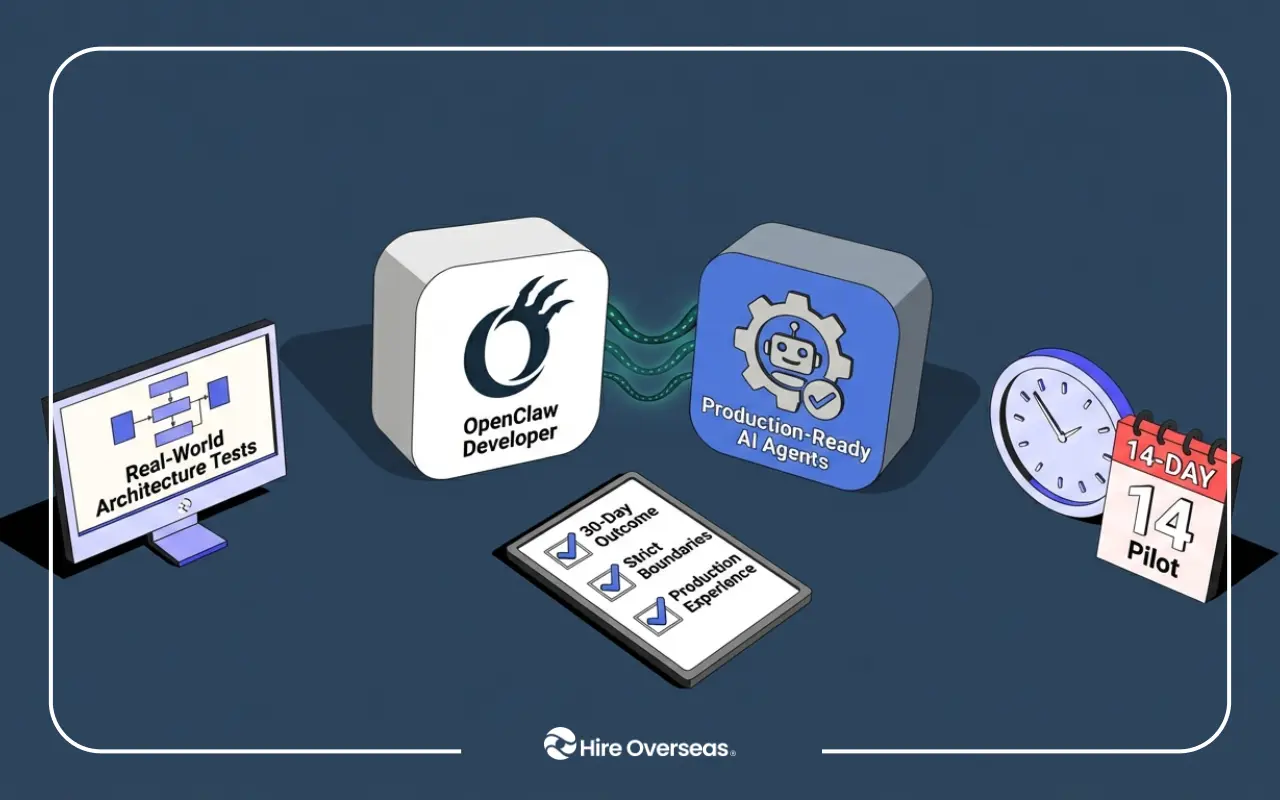25 Smart Questions to Ask HR During Interview (With Examples)
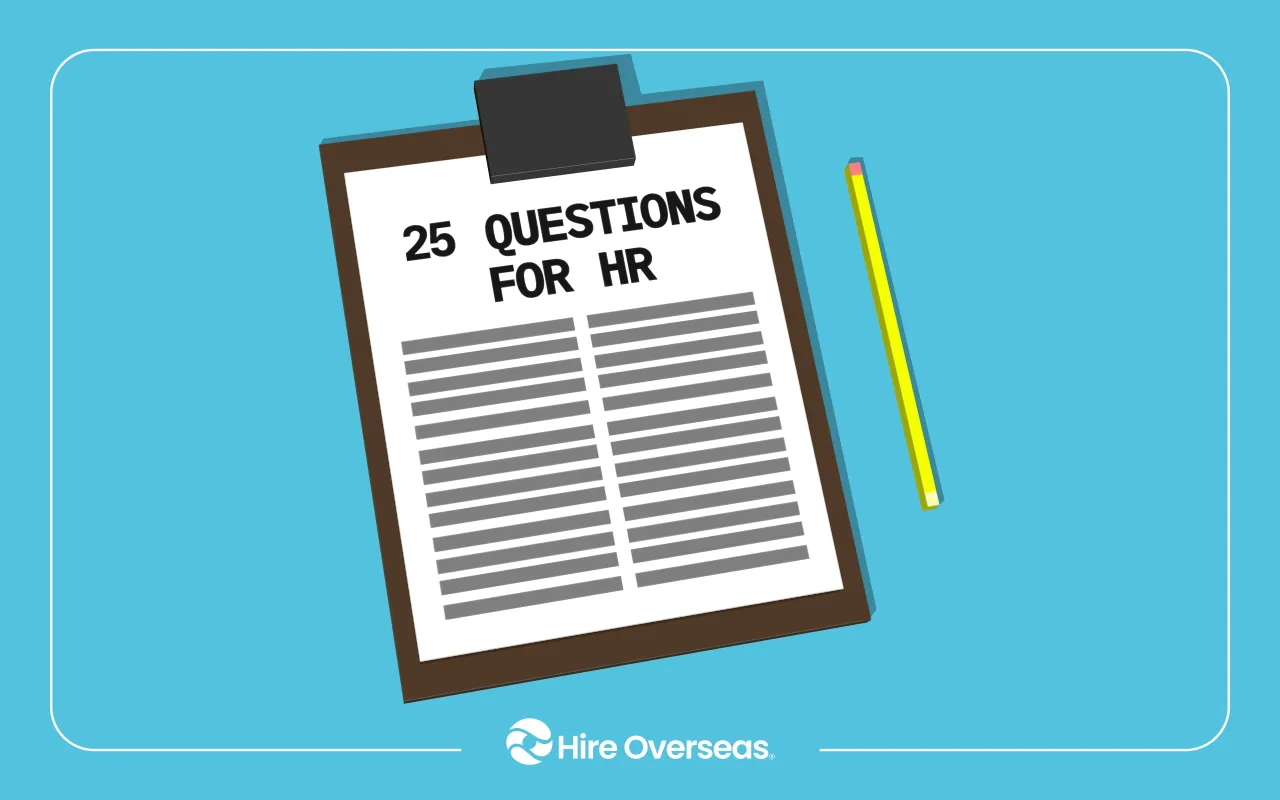
Most candidates walk into an interview focused on giving the “perfect” answers. But here’s the truth: interviews aren’t just about how well you respond, they’re also about the questions you ask. The right questions can set you apart, showing HR that you’re proactive, engaged, and serious about finding the right fit.
At Hire Overseas, we believe that preparing the right questions isn’t optional—it’s essential. Let’s dive into why preparing questions for HR can make all the difference in your interview success.
Why You Should Prepare Questions for HR
When preparing for an interview, most candidates focus on answering questions well. But interviews aren’t one-sided—they’re a two-way conversation. Preparing the right questions to ask HR during interview not only helps you gather vital information but also shows that you’re proactive, thoughtful, and serious about the role.
HR professionals are evaluating your cultural fit, values, and long-term potential—not just your résumé. Meanwhile, the questions you ask reveal what matters most to you and help you decide whether this opportunity is truly the right fit.
Here’s why preparing questions for HR is so important:
1. Gain Insight Into Company Culture and Values
A company’s culture can have a huge impact on your day-to-day experience. By asking about workplace values, leadership style, and collaboration, you can uncover whether the environment matches your working style and personal priorities. This also shows HR that you care about more than just landing the job—you want to find the right fit.
2. Understand Career Growth and Training Opportunities
A job should be more than a short-term position—it should offer room for growth. When you prepare questions about advancement, professional development, or internal mobility, you signal that you’re thinking long term. At the same time, you gain clarity on whether the company invests in its people and supports their career progression.
3. Clarify Compensation, Benefits, and Work-Life Balance
While salary is often discussed later in the process, HR can help clarify benefits and policies that directly affect your quality of life. Preparing questions around benefits, flexible work, or wellness programs ensures you know exactly what the company offers beyond the paycheck. This helps you weigh opportunities more realistically.
4. Build Rapport With the HR Interviewer
An interview isn’t just an evaluation—it’s also a chance to form a connection. Preparing thoughtful, open-ended questions encourages dialogue and shows genuine interest in the role and company. It demonstrates that you value transparency and engagement, leaving a positive impression on the HR interviewer.
Hire overseas Pro Tip: Choose questions that align with what matters most to you. If growth is your priority, focus on training and career paths. If balance is key, lean toward benefits and work-life support. Tailoring your approach shows maturity and self-awareness.
Matching Your Questions to the HR Interview Stage
Not all HR conversations are the same. Before deciding what questions to ask HR in an interview, it’s important to recognize who you’re speaking with and what their role is in the hiring process. Tailoring your questions to the right person not only makes your conversation more relevant but also shows that you understand how the hiring process works.
Here’s how to adjust your approach depending on the stage and person:
HR Recruiter
An HR recruiter is usually your first point of contact. Their role is to screen candidates, assess overall fit, confirm salary expectations, and check availability. They may not have all the technical details about the role, but they’re the gateway to the next stage.
Why it matters: Asking the right questions here helps you understand the big picture while keeping your candidacy moving forward. It’s also your chance to show enthusiasm and alignment early in the process.
Best areas to focus on: role clarity, the hiring process timeline, salary ranges, company culture at a high level, and benefits overview.
HR Manager
An HR manager often takes a broader view, focusing on organizational policies, employee engagement, and long-term talent development. They may oversee onboarding, compliance, and culture initiatives, and can provide a deeper look into what it’s really like to work at the company.
Why it matters: This is your chance to go beyond surface-level details and explore topics like career development, growth paths, and performance expectations. The HR manager is usually well-placed to answer questions about company stability, leadership style, and how employees are supported in their roles.
Best areas to focus on: company culture, career development, training opportunities, performance review processes, and employee retention efforts.
HR Screening Interview
A screening interview is typically a short, structured call meant to filter candidates before the main rounds. It’s usually less about deep company insights and more about verifying your qualifications and interest.
Why it matters: Even though it’s brief, this conversation sets the tone for the rest of your interview process. Smart, concise questions here demonstrate your preparation and keep you from being eliminated early.
Best areas to focus on: job basics, role expectations, required skills, and the next steps in the process.
Hire Overseas Pro Tip: Always match your questions to the level of detail the HR professional can realistically provide. A recruiter may not know in-depth career progression paths, while a manager might not discuss salary specifics. Aligning your questions with the right person makes you look sharp and ensures you get useful answers.
Common HR Interview Questions You Should Expect

Before you think about what questions to ask HR in an interview, it’s equally important to prepare for the questions HR will ask you. Remember, interviews are a two-way dialogue, while your questions demonstrate curiosity and initiative, the HR interviewer’s questions are designed to assess your fit for the company.
Most HR professionals start with broad, open-ended prompts to get to know you, then move toward role-specific or situational questions. Being ready for these ensures you make a strong impression and can transition smoothly into asking your own thoughtful questions later in the interview.
Here are some common HR interview questions you’ll likely encounter:
Tell me about yourself and your career journey.
- This is often the icebreaker, but it’s also a test of how clearly and confidently you can present your background. Keep it concise, professional, and relevant to the role.
Why are you interested in this role?
- HR wants to see if your motivations align with the company’s goals and whether you’ve done your research.
What are your salary expectations?
- This can be tricky, but being prepared with a researched range shows professionalism and market awareness.
How do you handle conflict in the workplace?
- HR looks for emotional intelligence, communication skills, and professionalism in your response.
Where do you see yourself in the next few years?
- This question helps HR gauge whether the company can support your long-term goals and if you’re likely to stay.
What do you know about our company?
- A classic test of preparation. Demonstrating knowledge about the company’s mission, products, or culture shows genuine interest.
By preparing for these common HR interview questions, you’ll feel more confident and polished. Once you’ve answered effectively, the spotlight naturally shifts back to you, making it the perfect time to ask your own questions. That’s where having a well-prepared list of good questions to ask HR in an interview becomes invaluable.
25 Good Questions to Ask HR in an Interview
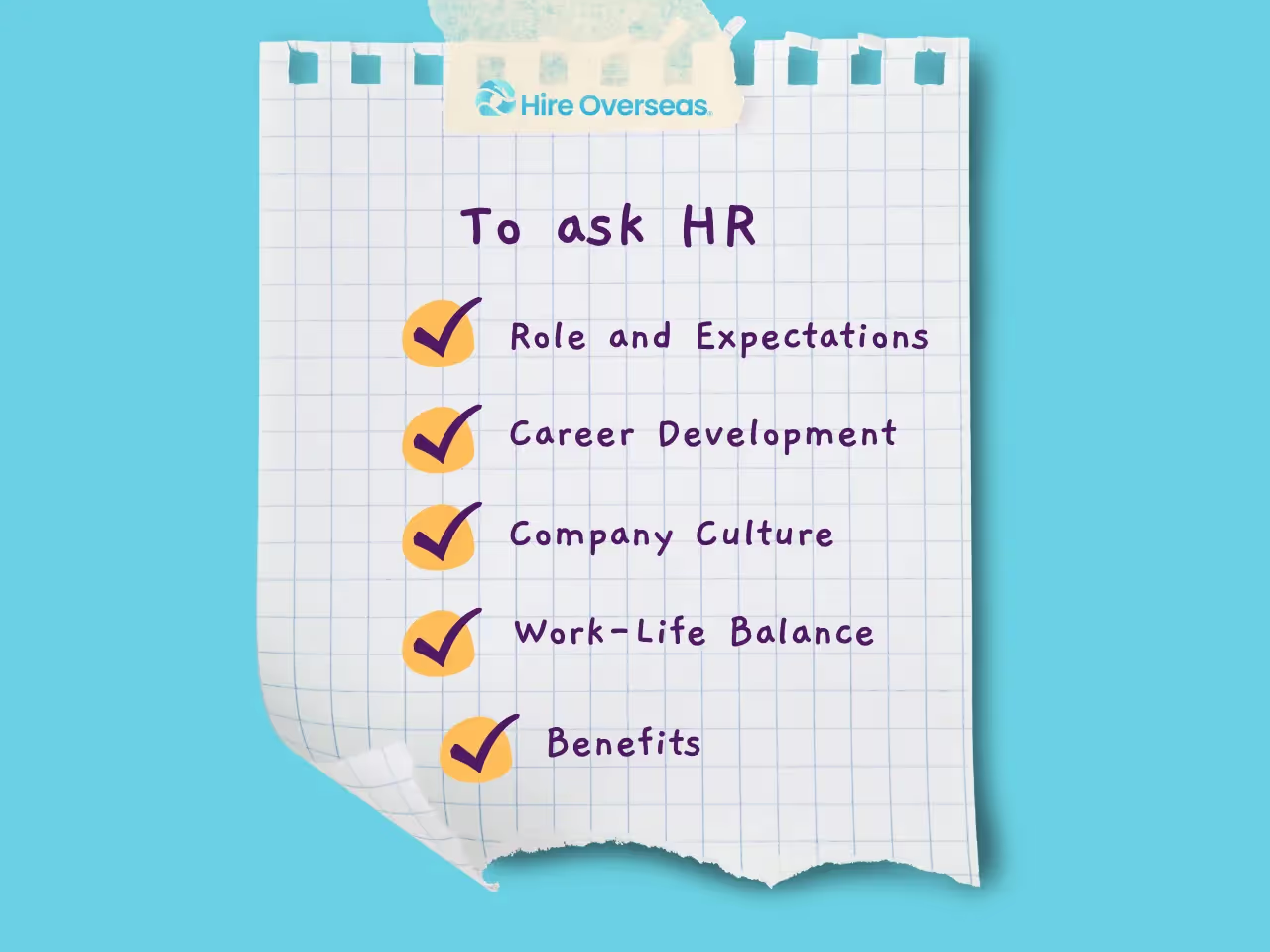
Below are categorized examples of questions to ask HR interviewers that go beyond the basics. Each category highlights why these questions matter, so you know exactly what insights you’ll gain by asking them.
About the Role and Expectations
These questions help you understand how your position fits into the bigger picture and what success looks like in the first few months.
- How does this role contribute to the company’s overall goals?
- What are the first key projects or challenges the person in this role will face?
- How is performance measured during the first 90 days?
- What qualities make someone successful in this position?
Career Development and Growth
If you’re thinking long term, these questions uncover whether the company invests in employees’ futures and supports career advancement.
- What professional development or training programs are offered?
- Are there opportunities for internal promotions or cross-department transfers?
- How does the company support employees’ long-term career goals?
- What mentorship or coaching opportunities are available for employees?
Company Culture and Work Environment
Culture shapes your day-to-day experience. These questions reveal the values, teamwork style, and inclusivity of the workplace.
- Can you describe the company culture in a few words?
- How does the team handle conflicts or disagreements?
- What initiatives support diversity, equity, and inclusion?
- How does the company foster collaboration and innovation across teams?
Work-Life Balance and Policies
It’s important to know how a company supports balance and flexibility. These questions help you gauge whether the organization respects personal time and well-being.
- What is the company’s policy on remote or hybrid work?
- How does the organization support employee well-being and mental health?
- What does a typical workweek look like in this role?
- How does the company handle overtime, flexible hours, or time-off requests?
Compensation and Benefits
Beyond salary, benefits can make a huge difference. These questions help clarify what perks, rewards, and support systems the company provides.
- How often are performance reviews and salary adjustments conducted?
- Can you share more about health benefits, retirement plans, or bonuses?
- Does the company offer tuition reimbursement or professional certifications?
- Are there non-monetary perks (such as wellness programs, team retreats, or learning stipends)?
The Hiring Process and Next Steps
Asking about next steps shows professionalism and ensures you know what to expect. These questions keep you informed and reduce uncertainty after the interview.
- What are the next stages of the hiring process?
- How soon do you expect to make a hiring decision?
- Who will be involved in the next rounds of interviews, and what will they focus on?
- Is there anything else I can provide to support my application?
- How does the company communicate feedback to candidates throughout the process?
When Is the Right Time to Ask HR Questions?
Knowing when to ask questions in an HR interview is just as important as knowing what to ask. The timing and delivery can make your questions feel thoughtful and professional—rather than rushed or misplaced.
Toward the End of the Interview
Most HR professionals will close the interview with something like: “Do you have any questions for us?” This is the perfect moment to bring out your prepared questions. By waiting until this stage, you ensure your questions don’t interrupt the natural flow of the conversation.
Spread Across Different Stages
If your interview process involves multiple stages like a recruiter call, an HR manager interview, and a screening round, you don’t need to save every question for the end. Instead, match the questions to the person and stage:
- Recruiter: Ask about the hiring process, role basics, and benefits overview.
- HR Manager: Dive deeper into career development, policies, and company culture.
- Screening Interview: Stick to clarifying questions about job expectations and next steps.
During Natural Pauses
If the HR interviewer asks, “Do you have any questions before we move on?” it’s okay to ask one or two right then. Just avoid asking too many mid-interview—save the bulk of them for the end.
Hire Overseas Pro Tip: The best time to ask HR questions in an interview is after you’ve already showcased your skills and answered their questions. That way, your questions feel like a continuation of a professional dialogue, not a distraction.
Questions You Should Avoid Asking HR
Just as important as preparing the best questions to ask HR in an interview is knowing what not to ask. Certain questions can make you appear unprepared, overly focused on yourself, or even unprofessional. To keep the right impression, avoid these types of questions:
Salary or Benefits Too Early
Asking “How much does this role pay?” in the first conversation can feel premature. Save detailed salary and benefits discussions for later stages, once mutual interest is clear.
Negative or Critical Questions
Avoid phrasing like: “Why is turnover so high here?” or “What do people dislike about this company?” While it’s fair to want clarity, asking in a negative way can make you seem combative. Instead, frame positively: “What steps does the company take to retain employees?”
Anything You Could Easily Google
Questions like “What does your company do?” or “Where are your offices located?” show a lack of preparation. Do your homework on the company’s website or LinkedIn before the interview.
Overly Personal or Irrelevant Questions
Avoid questions about the interviewer’s personal life, office gossip, or topics unrelated to the role. Keep the focus professional and relevant to your potential future with the company.
Overloading With Too Many Questions
Asking a long laundry list of 10+ questions at once can overwhelm the interviewer. Instead, choose your top 3–5 for each stage, and save the rest for later rounds.
Hire overseas Pro Tip: Always filter your questions through one lens: “Does this make me look prepared, professional, and genuinely interested in the role?” If the answer is no, leave it off your list.
The Power of Asking HR the Right Questions
An interview is never just about answering questions—it’s a chance to uncover whether a company is the right match for you. By preparing good questions to ask HR in an interview, you demonstrate initiative, curiosity, and long-term thinking. The best strategy? Match your questions to the stage of the interview and the HR professional you’re speaking with. A recruiter may help clarify the process and role basics, while an HR manager can provide deeper insights into culture, growth, and retention. And while asking questions is vital, knowing what questions to ask HR in an interview and which ones to avoid is what sets strong candidates apart.
So before your next interview, don’t just practice your answers. Take time to prepare thoughtful questions to ask the HR interviewer, and you’ll walk away with both confidence and clarity no matter the outcome.
Aim for 3-5 meaningful questions, keep them professional, and tailor them to what truly matters to you. That’s how you leave a lasting impression.
Ready to Take the Next Step?
Asking the right questions in an interview is only half the journey, the other half is finding the right opportunity
Apply with Hire Overseas and take the first step toward your next big career move.
FAQs About HR Interviews
How long do HR interviews usually last?
An HR screening call may take 15–30 minutes, while a more in-depth HR manager interview can last 45–60 minutes. The duration often depends on whether it’s an initial screening or a detailed conversation about policies, culture, and growth opportunities.
What are red flags to watch for in an HR interview?
Red flags include vague answers about company culture, high employee turnover that isn’t addressed clearly, unclear career growth opportunities, or inconsistent responses about benefits and work policies. If HR avoids answering direct questions, it’s worth noting.
Can HR reject a candidate after the first round?
Yes. HR screenings are often the first filter in the hiring process. If your skills, salary expectations, or availability don’t match the company’s needs, HR may not move your application forward—even before you meet the hiring manager.
What should I do if I forget to ask HR a question during the interview?
It’s perfectly fine to follow up via email after the interview. Thank the interviewer for their time, express continued interest, and politely include any additional questions you didn’t get to ask. This also shows initiative and professionalism.
Is it okay to ask HR about remote work or flexible schedules?
Yes, but timing matters. If flexibility is a top priority for you, it’s appropriate to ask HR once the conversation has covered role details and company culture. Always frame it positively, showing that you want to balance productivity with flexibility.
Do HR interviews differ between large companies and startups?
Yes. In large companies, HR interviews are usually structured, with clear policies and processes. In startups, HR conversations may be more informal, and HR might also handle broader responsibilities, including culture-building and direct hiring decisions.
Unlock Global Talent with Ease
Hire Overseas streamlines your hiring process from start to finish, connecting you with top global talent.
Unlock Global Talent with Ease
Hire Overseas streamlines your hiring process from start to finish, connecting you with top global talent.

